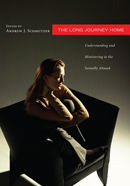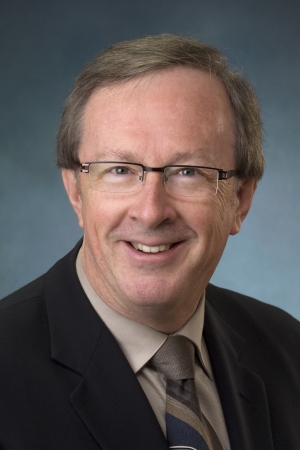A Charge for Church Leadership: Speaking Out Against Sexual Abuse and Ministering to Survivors, Part 2
Concluding Thoughts
Proclaiming that sexual abuse is wrong and never part of God’s design for healthy sexuality or healthy family living is part of the responsibility of every pastor of every congregation. Offering pastoral assistance to those who have been impacted by abuse is integral to the call of God to care for those who are hurting. It is also imperative to hold offenders accountable and to protect children, youth, and adults in our congregations from *predators. Church leadership needs to take these responsibilities seriously and to act accordingly. This may include offering their facilities to local *support groups run by professionals and/or peer mentors. Yet, pastors cannot—and should not—act alone. Rather, when clergy see themselves as part of a coordinated community response to victims, survivors, offenders, and those related to them, everyone will be better served. An awareness of the prevalence and severity of abuse—accompanied by an awareness of the various community-based agencies poised to assist—will help a pastor feel better equipped and help to protect a religious leader from feeling overwhelmed. Moreover, as religious leaders cooperate and collaborate with professionals in the community on the issue of sexual abuse, it strengthens the bidirectional relationship of referrals (between churches and their communities), and it also serves those most impacted by the trauma of sexual abuse. Speaking out on this issue shatters the silence. Supporting victims reduces the shame even while it applies the healing balm of Gilead to their wounds.
PR
For Further Reading
Clergy Sexual Abuse Project, www.baylor.edu/clergysexualmisconduct.
Grant, Beth and Cindy Lopez Hudlin, eds. Hands That Heal International Curriculum for Training Caregivers of Trafficking Survivors—Community-Based Editions—Part I; Part II. Springfield, MO: Project Rescue International and FAAST, 2007.
Kroeger, Catherine and Nancy Nason-Clark. No Place for Abuse: Biblical and Practical Resources To Counteract Domestic Violence. Downers Grove, IL: InterVarsity Press, 2001.
Lile, Sherry, Debbie Tetsch, N. Nason-Clark, L. Ruff, and Christa Hayden Sharpe. “Counting the Cost: Caregiver Issues.” In Hands That Heal International Curriculum for Training Caregivers of Trafficking Survivors—Academic Edition, edited by Beth Grant and Cindy Lopez Hudlin, 290–324. Springfield, MO: Project Rescue International and FAAST, 2007.
Steven R. Tracy Mending the Soul: Understanding and Healing Abuse. Grand Rapids: Zondervan, 2005.
The RAVE Project [Religion and Violence e-Learning], www.theraveproject.org.
Notes
14. Nason-Clark, The Battered Wife, esp. chapter 4.
15. Tracy, Mending the Soul; also research by Diana Garland: www.baylor.edu/clergysexualmisconduct.

This chapter is from Andrew J. Schmutzer, ed., The Long Journey Home: Understanding and Ministering to the Sexually Abused (Eugene, OR: Resource Publications, 2011). Used by permission of Wipf and Stock Publishers. www.wipfandstock.com
About the Authors: Nancy Nason–Clark and Stephen McMullin.
 Stephen McMullin is New Brunswick Program Director and Lecturer in Evangelism and Mission Acadia Divinity College (Wolfville, Nova Scotia, Canada). www.acadiadiv.ca/stephen-mcmullin/
Stephen McMullin is New Brunswick Program Director and Lecturer in Evangelism and Mission Acadia Divinity College (Wolfville, Nova Scotia, Canada). www.acadiadiv.ca/stephen-mcmullin/
Interviews with Andrew Schmutzer about The Long Journey Home: Understanding and Ministering to the Sexually Abused and his chapter, “A Theology of Sexuality and its Abuse: Creation, Evil, and the Relational Ecosystem” as appearing in Pneuma Review.
Category: Ministry, Spring 2014


